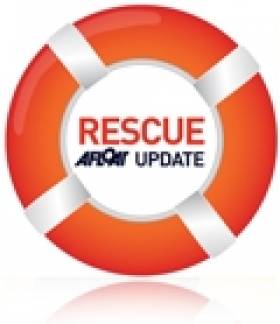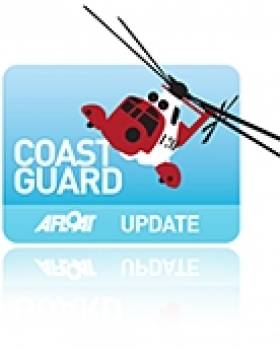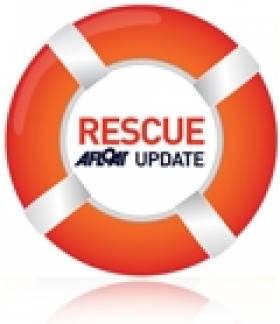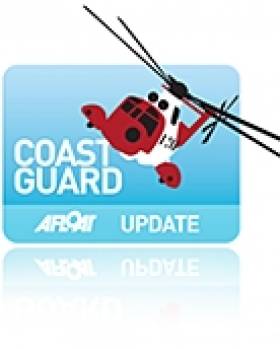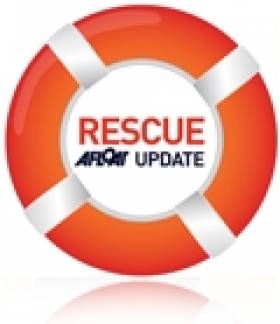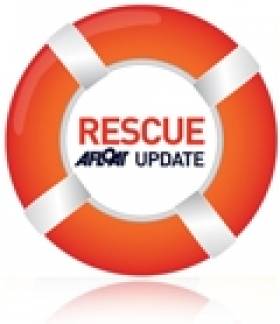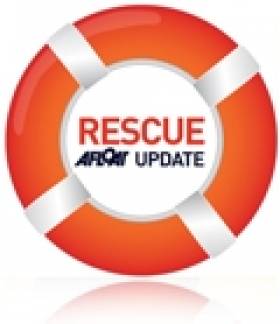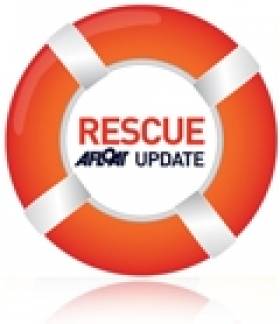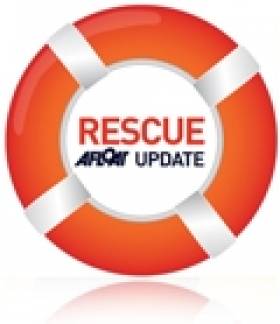Displaying items by tag: Rescue
Six Junior Sailors Rescued In Dun Laoghaire Drama
#Rescue - Independent.ie reports on the dramatic rescue of six young sailing trainees after their dinghy overturned in a gust in Dun Laoghaire harbour yesterday afternoon (Sunday 26 April).
One of Dun Laoghaire RNLI's lifeboats spotted the children in trouble while returning to port from an exercise and helped the six out of the water.
Coastguard Chopper Operator Hails 'Milestone' Year
#Coastguard - Shannon-based Rescue 115's "milestone" year has been highlighted by the operator of Ireland's coastguard helicopter fleet.
In an interview with Aviation Today, CHC general operations manager Chris Hodson said 2014's "significant number of missions" was down to the introduction of state-of-the-art, long-range Sikorsky S92 helicopters across Ireland's four bases.
And in particular, the 310 missions flown by the Shannon chopper for the Irish Coast Guard were "quite an accomplishment for the crew".
Hodson said it was "a real milestone to have one aircraft on one base complete so many missions out into the North Atlantic."
This year, meanwhile, the focus is on providing the helicopters in Shannon, Dublin, Waterford and Sligo with night vision capabilities to enhance rescue efforts under cover of darkness.
Aviation Today has more on the story HERE.
Tourist In Fall Near Cliffs Of Moher
#Rescue - BreakingNews.ie reports that a French tourist was rescued after a fall near the Cliffs of Moher yesterday afternoon (Sunday 29 March).
The woman had been walking with her family south of the famous Clare coastal spot when she slipped off the cliff path, fracturing her ankle.
Coastguard volunteers from Doolin has to reach the casualty on foot as the area where she fell is inaccessible by vehicle.
The casualty was stretchered to the nearby visitor centre and later airlifted to hospital amid concerns about her condition.
The incident comes a fortnight after a surfer was rescued when he got trapped at the base of the 700-foot Cliffs of Moher, among Ireland's most popular tourist attractions.
Coastguard Rescues Two After Howth Cliff Fall
#Coastguard - The Irish Examiner reports on an Irish Coast Guard callout to rescue two men who got into difficulty on Howth Head yesterday evening (Friday 27 March).
One of the men in their 20s had apparently fallen on the cliff path to the water at Balscadden Bay. Both were quickly located and removed to a waiting ambulance by the coastguard and Dublin Fire Brigade.
Three Escape Injury As Yacht Runs Aground In Dublin Bay
#Rescue - A yacht was towed to safety by the Dun Laoghaire RNLI lifeboat this afternoon (Wednesday 25 March) after it hit rocks on the South Bull Wall at the entrance to Dublin Port.
Three people were on board the 31-foot boat when the incident occurred shortly after 3pm.
Two persons clambered ashore while the third remained on board as a pilot boat and other passing vessels stood by to assist.
The all-weather RNLI lifeboat at Dun Laoghaire was requested at 3.43pm to launch by the Irish Coast Guard’s Marine Rescue Co-Ordination Centre (MRCC) in Dublin and arrived just before 4pm.
A lifeboat crew member was put on board the yacht to assist and cut the anchor that the yacht’s crew had deployed earlier when their engine failed.
The Dun Laoghaire coastguard unit also attended and brought the yacht’s remaining crew to Poolbeg, where they rejoined their boat.
Man Arrested After Falling Into River Lee
#Cork - The search for a homeless man seen falling into the River Lee in Cork city ended in his arrest, as The Irish Times reports.
Valentia Coast Guard co-ordinated the search and rescue operation for the man, who was witnessed falling into the water after 7am yesterday morning (Saturday 21 March).
However the man was quickly discovered by emergency personnel on a support beneath Parnell Bridge, refusing to come out.
The Irish Times has more on the story HERE.
Champion Bodyboarder Airlifted From Clare Coastal Cliff
#Rescue - A world champion bodyboarder was airlifted to hospital from the base of a Doonbeg cliff earlier this week after suffering an injury in the water off the Clare coast.
The Clare Herald has more on the incident, telling how 36-year-old Australian bodyboard pro Ben Player was injured while bodyboarding near Spanish Point, then fell ill later in the day while watching friends surfing near Doonbeg.
Members of the Irish Tow Surf Rescue Club, who were in the area to keep watch for surfers taking on the challenging Riley's wave, rushed to Player's aid and raised the alarm.
It comes just says after a surfer was rescued from the base of the Cliffs of Moher.
As previously reported on Afloat.ie, the man was winched to safety by the Sligo coastguard helicopter after getting separated from a group of surfers and winding up on the rocks at the foot of the famous Co Clare cliffs.
Surfer Rescued From Cliffs Of Moher
#Rescue - The Irish Independent reports that a surfer has been rescued after getting trapped at the foot of the Cliffs of Moher.
What began a search operation for a missing surfer yesterday evening (Saturday 14 March) soon became a rescue effort when the man was found ashore at the base of the 700ft cliffs in Co Clare.
The Sligo coastguard helicopter was able to winch him abroad and airlift him to hospital just before midnight. More HERE.
Quick-Thinking Gardaí Rescue Driver From Car In Water At Howth
#Rescue - Gardaí were swift on the scene in Howth Harbour to rescue a man whose car entered the water in the early hours of Wednesday morning (25 February).
As the Irish Examiner reports, the driver had managed to get out of his vehicle before it sank - and was retrieved from the water by local gardaí before he succumbed to the cold.
Howth Coast Guard and the harbour's RNLI lifeboat also attended the scene with the Dublin Fire Brigade.
Second Russian Fishing Vessel In A Week Requires Medevac
#Rescue - Irish Coast Guard helicopter Rescue 115 was dispatched yesterday morning (18 February) for a medevac of an injured fisherman.
As the Irish Independent reports, the casualty was on a Russian fishing vessel some 200 miles off the southwest coast, heading towards Castletownbere.
The operation comes just a week after another Russian crewman was airlifted from a factory ship off Cork after sustaining a hand injury.
The latest incident is believed to relate to a bleeding ulcer, and the casualty was expected to be transferred to the mainland for treatment by yesterday afternoon.



























